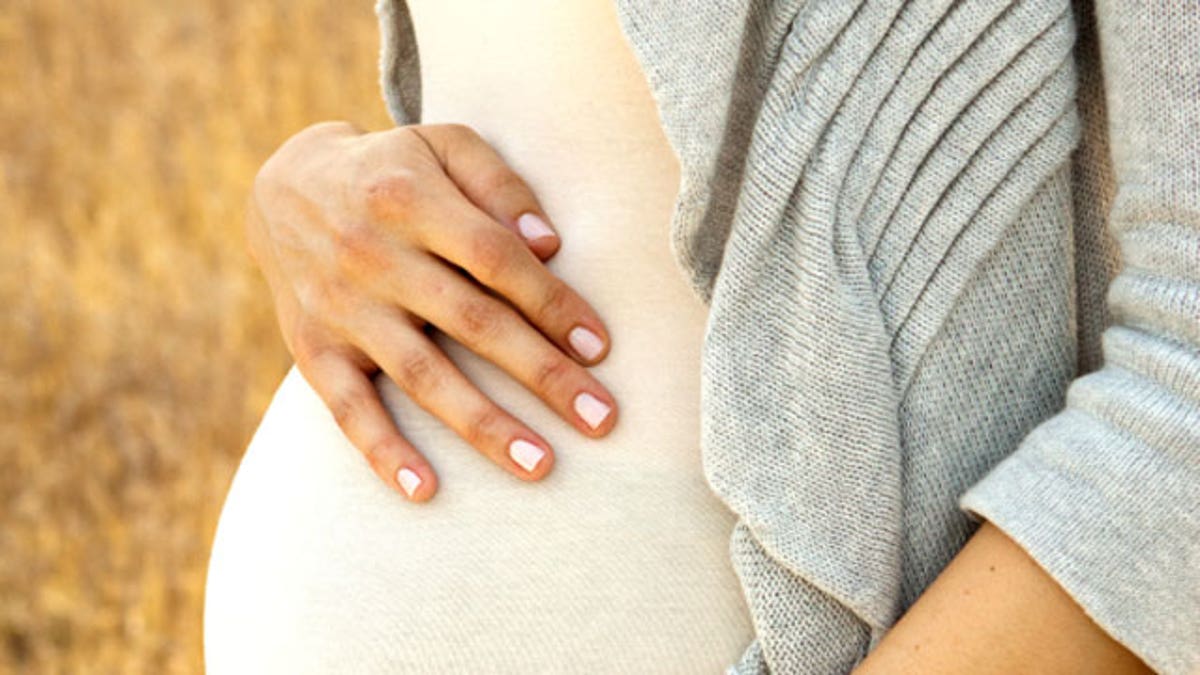
Women who quit smoking immediately before or after becoming pregnant gain more weight during and after pregnancy - but their babies are less likely to be born small than those born to smokers, a new study suggests.
Researchers in Denmark found that women who quit smoking gained about six more pounds during their pregnancies than those who continued to smoke, and a similar amount in the year after giving birth.
On the other hand, women who quit smoking early in pregnancy and nonsmokers gave birth to babies of similar birth weights, on average. Babies of women who kept smoking were more likely to be born at a low weight.
"The big thing to get out of this study is that quitting early in pregnancy is as helpful in respect to the birth weight of your baby as never having smoked while you were pregnant," Dr. Amber Samuel, a maternal-fetal medicine expert at Emory University School of Medicine in Atlanta, said.
"I think that can be an inspiration to moms who are looking to make a change in their lives."
According to the American Cancer Society, between 10 and 15 percent of women smoke during pregnancy. Studies have linked smoking to premature birth and other complications, such as birth defects, low birth weight and stillbirth.
Infants have a three to four times higher risk of dying from sudden infant death syndrome, or "crib death," if their mothers smoke during and after pregnancy. Children exposed to secondhand smoke also have more ear infections, pneumonia, bronchitis, asthma and other health problems.
The new study included 1,774 women who were part of the "Smoke-free Newborn" study conducted in Copenhagen, Denmark, between 1996 and 1999.
Twice during pregnancy, researchers surveyed women about their smoking status. To double-check whether women who said they quit smoking really did, their saliva was checked for cotinine - created when nicotine is broken down in the body.
About 38 percent of women were smokers before becoming pregnant, and half of them quit right before or soon after, Dr. Line Rode of Copenhagen University Hospital and colleagues found.
During pregnancy, nonsmokers gained almost 30 pounds, on average, smokers gained 29 pounds and quitters gained 35 pounds.
Among women who quit smoking, 8 percent had babies born below the 10th percentile for birth weight, based on general Scandinavian records. In comparison, 22 percent of smokers had babies whose weight fell below that cutoff.
Babies with low birth weight are at higher risk for infections, breathing and respiratory disorders, delayed growth and social development and learning disabilities.
One year after giving birth, half of quitters were able to stay off cigarettes. Nonsmokers and relapsed quitters both gained between 1.5 and 2 pounds post-pregnancy, successful quitters gained 7 pounds and smokers lost about half a pound, according to findings published in Obstetrics and Gynecology.
"One strength of the study is that it tried to ferret out whether women who say they quit smoking actually did quit," Samuel, who was not involved in the research, told Reuters Health.
On the other hand, she said the results may not apply to the current U.S. population.
"There were very few obese women in this study," Samuel said.
According to the Institute of Medicine, women with a normal pre-pregnancy weight should gain between 25 and 35 pounds during pregnancy and obese women should gain 11 to 20 pounds.
Excessive weight gain during pregnancy is linked to birth complications and medical problems for the mother, such as gestational diabetes. Extra weight that stays on after pregnancy can increase a woman's risk for obesity, diabetes and heart disease.
Samuel said most women in this study did not gain enough weight to offset the long-term benefits of not smoking.
She said it's not possible to put a time frame on how late into pregnancy a woman can quit smoking and still see benefits for her baby, since the researchers did not analyze their results based on when, exactly, women kicked the habit.
